
Use of Has and Have Has and Have in English Grammar Has and Have
from English Grammar Today Have: forms Have is an irregular verb. Its three forms are have, had, had. The present simple third person singular is has: We usually have breakfast at about eight. I had a strange dream last night. She has quite dark hair. Have: uses We use have as a main verb and an auxiliary verb. Have: typical error

Have czy Has? Jak używamy? Gramatyka angielska ELLA
Answer The choice between 'has' and 'have' depends on its subject. Below is a chart showing which word to use with each type of subject: You'll notice that the only subject you should use "has" with is third person singular (he has, she has, it has). You should use "have" everywhere else.

Have has
The Biden administration privately asked Microsoft about the lab while drafting a ban over the past two years on new U.S. investments in companies building sensitive technologies in China that.

moje pomysły jak Czasownik HAVE
have something (not used in the progressive tenses) to own, hold or possess something He had a new car and a boat. Have you got a job yet? I don't have that much money on me. She's got a BA in English. British/American have you got? / do you have? Want to learn more?

Disney announces first official LGBTQ character in an animated feature
Have and has indicate possession in the present tense (describing events that are currently happening). Have is used with the pronouns I, you, we, and they, while has is used with he, she, and it. How do you use have? Have is the conjugation of to have that's used when: speaking in the first person ( I, we) speaking in the second person ( you)
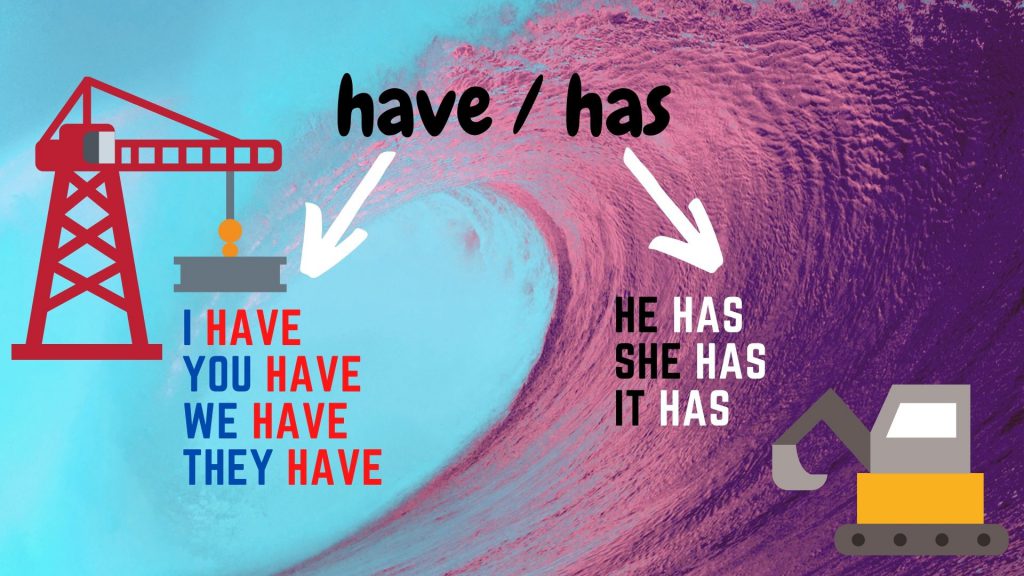
Present Perfect konstrukcja i zastosowanie czasu Learn Breaker
Ready to practice has and have? Get a book and pen: Write two sentences using "have" in the simple present tense. Write two sentences using "has" in the present perfect tense. Try these other "has vs. have" exercises: Exercise 1: Fill in the blanks with either "has" or "have": I ____ invited you here to talk to you.

Has / Have, Own, Possess Kata Kerja yang bermakna "memiliki" Dunia
Grammar Has vs. Have: What's the Difference? Has vs. Have: What's the Difference? powered by LanguageTool Is it "she have" or "she has"? It "has" or "have"? "Have been" or "has been"? Below, we'll help you understand the difference between "has" and "have" so you can use these two commonly confused words confidently and correctly.
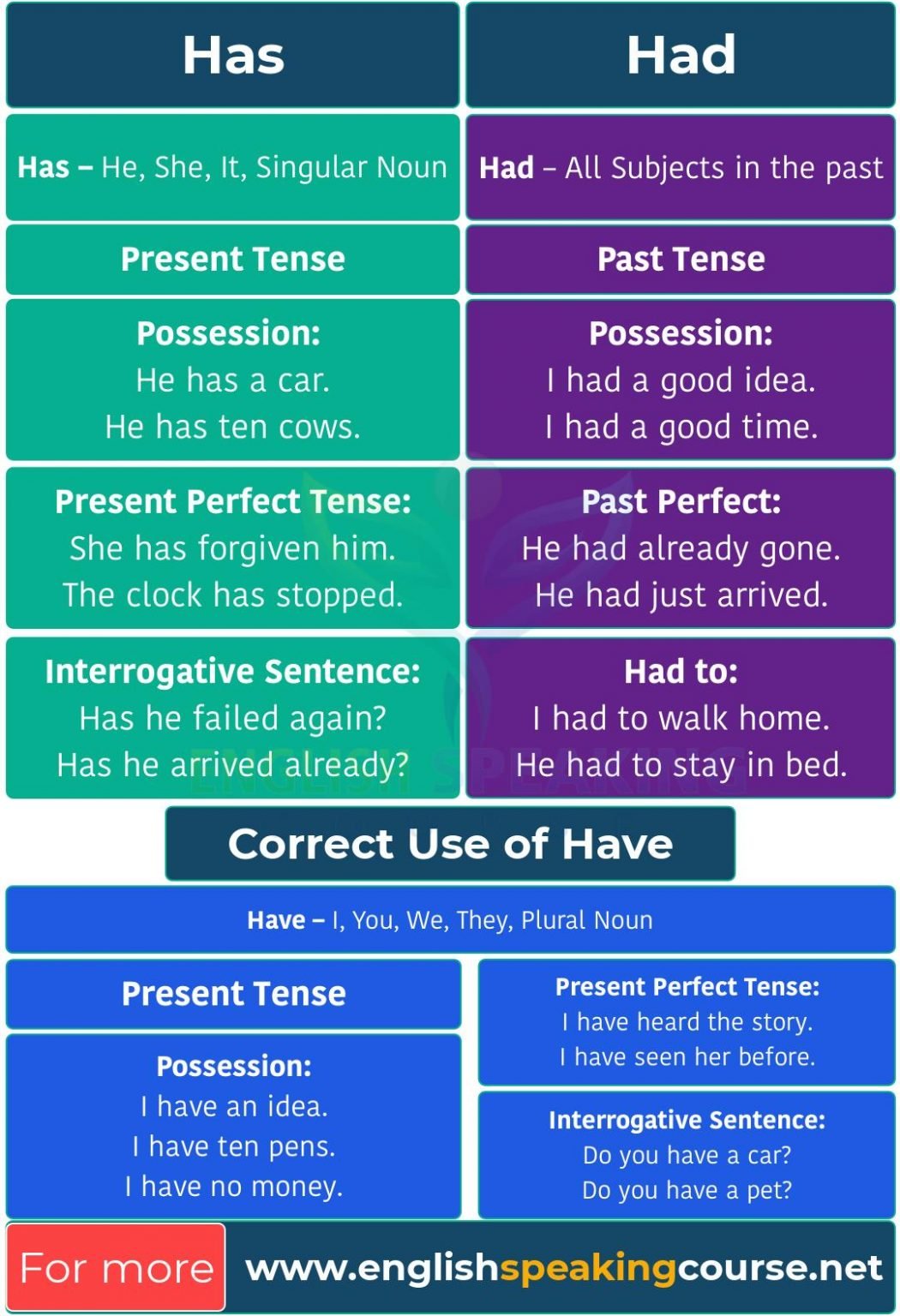
Have Has Had Basic English Grammar Grammar
henry ergas. Anti-Semitic sermons underline how Islam has changed. Abu Ousayd, also known as Wissam Haddad, a Sydney-based Islamic cleric, who recited parables calling for the killing of Jews. Had.

Pin de pooja en عبد الرحمن Ingles para preescolar, Aprender inglés
Benjamin Netanyahu on Thursday condemned South Africa's genocide case against Israel in Gaza as "hypocrisy and lies", as some Gazans returned to scenes of total devastation in the north of the.

Use of "Have/Has". एक ही video काफी है, have, has के सभी Use समझने के
The verb have has the forms: have, has, having, had. The base form of the verb is have. The present participle is having. The past tense and past participle form is had. The present and past forms are often contracted in everyday speech, especially when have is being used as an auxiliary verb. The contracted forms are: have = 've.

Być czy mieć? Angielskie have got i to be [odmiana] ⋆ Nauka ze
To have means to possess or hold something. It also means to experience or undergo something. "Has" and "have" both mean the same thing as "to have." So why are there two different versions of the word? When Should I Use Have or Has? It's all to do with who we are talking about.

Have got, has got Język angielski dla dzieci Nauka online
Has She has a horrible job. He has the biggest oxford dictionary. She has green eyes. He has a mean boss. Had I had a great job before the economic crisis. Now I am unemployed. He had an Oxford dictionary but someone stole it last week. I had blue eyes when I was born but they changed to brown when I was two years old.

BLOG EDUKACYJNY DLA DZIECI Czasownik Have got to Edukacja domowa
To have is an irregular verb that can be used as a main or auxiliary verb. Its forms are have, has, had, and having. I have a lot to do tomorrow. He has to win three games to make it to the finals. Luis had to arrive at the airport at 3:00 PM. We're having a party tomorrow.
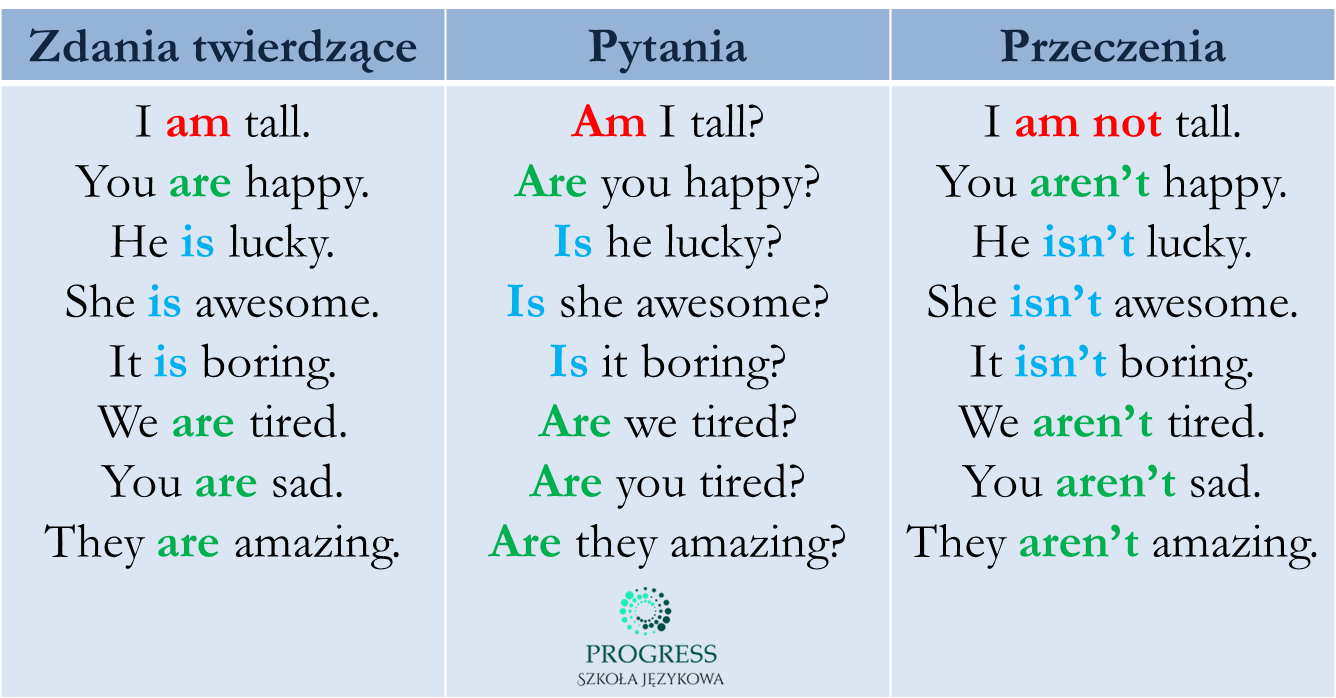
Progress Szkoła Językowa Racibórz to be present
However, they are two different forms of the verb " to have". "Have" is a verb that means to possess something or to do something. For example, 'I have a car.' or 'I have a pencil.' 'Has' is also a verb that means the subject has done something at some point in their life. For example, 'He has been to Paris.'.
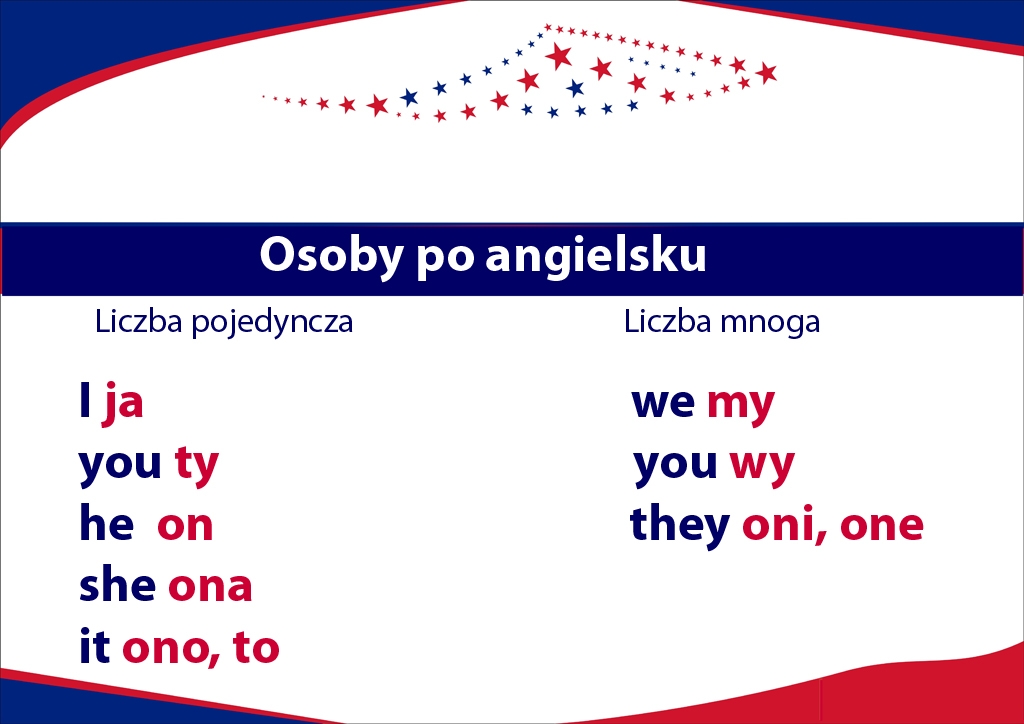
Zajęcia do wzięcia. Język angielski kl. 4
To have and to hold, or to has and to hold? Find out which form to use in tricky situations such as present perfect tense and possession.
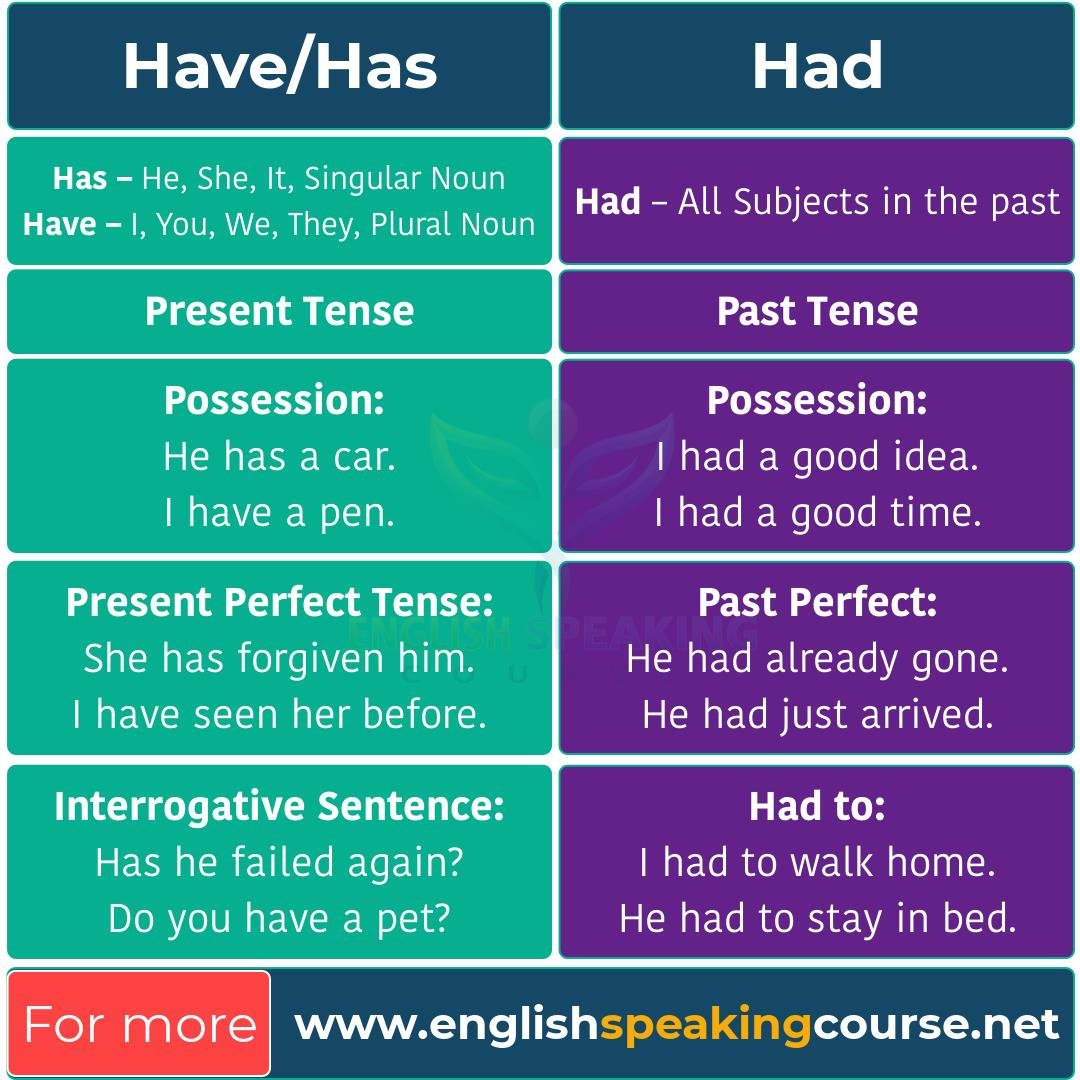
Have Has Had Basic English Grammar Grammar
"Have" And One More Thing. Download: This blog post is available as a convenient and portable PDF that you can take anywhere. Click here to get a copy. (Download) "Has" vs. "Have": What's the Difference? "Has" and "have" are both conjugations of the verb "to have."